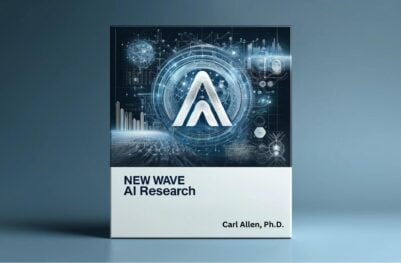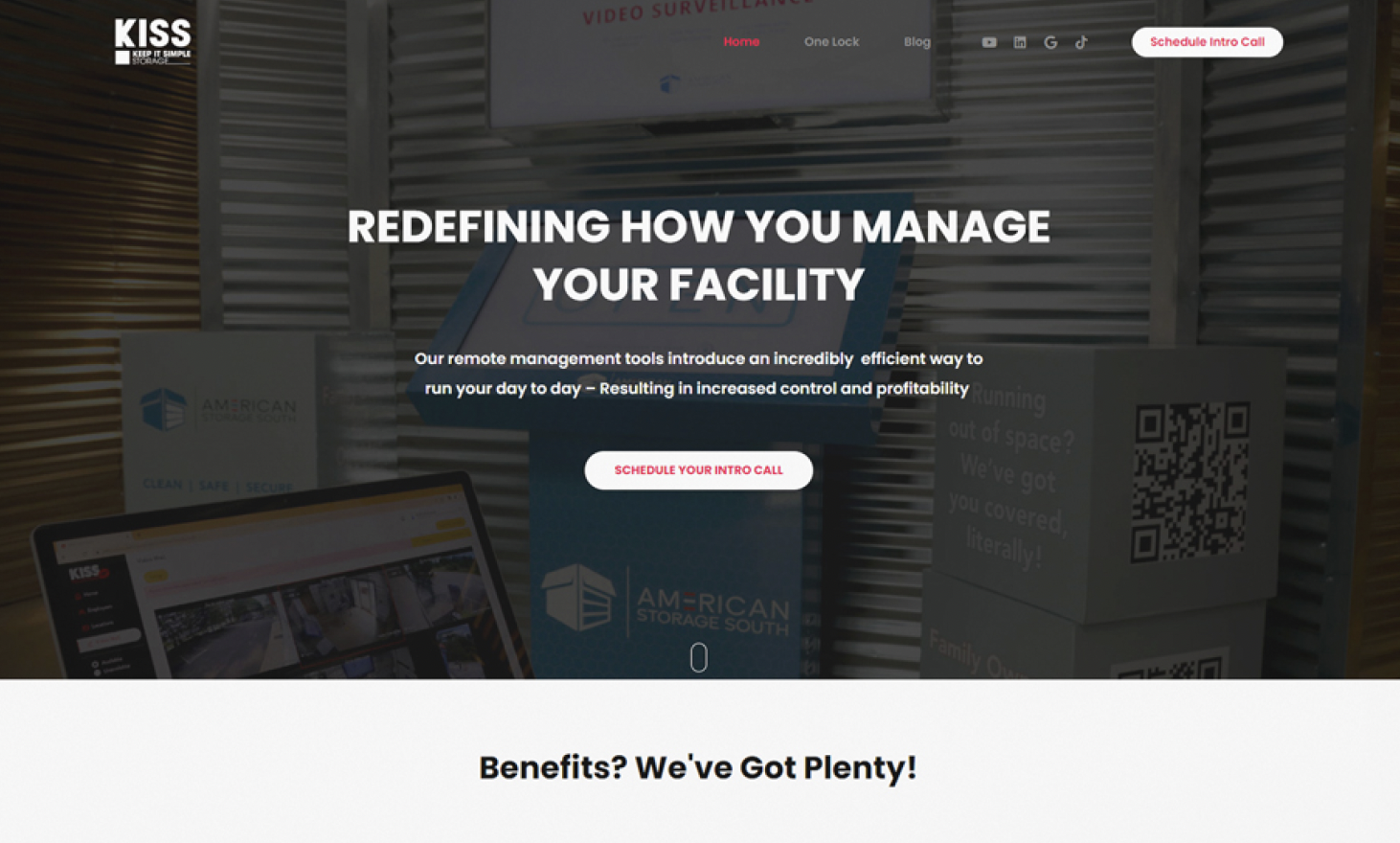- Developers
- Developer Blog
- Software Development
- How to Build an ERP for Retail?

profile

By Faiza Khalid
Verified Expert
5 years of experience
Faiza is a CIS engineer with a keen interest in software development, AI research, and technology writing.
Are you interested in developing an ERP for retail business?
The ERP market is expanding globally, and the retail industry is one of the main contributors. The global ERP market is expected to reach $97.15 billion by 2024. The retail sector is reported to make up 3.96% of the total ERP consumers.
Every business requires a systematic approach to organizing and managing its resources and operations. Enterprise resource planning (ERP) software provides an effective business management platform based on a centralized database where different business modules integrate and communicate seamlessly.
Let’s discuss how you can develop such an ERP for retail.
Developing an ERP for Retail
You should go through the following steps to develop a robust and secure ERP for the retail industry.
Gather Requirements and Decide on the Project Scope
You would start by planning the features you want to build in your retail ERP software. You need to decide what you want to achieve via an ERP system in your retail enterprise. You may want an efficient supply chain, more visibility into your business processes via reporting capabilities, improved customer service, etc.
An ERP for retail has the following main features:
Finance and Accounting: According to 56% of accountants, accounting technology makes them more productive. ERP software helps immensely with managing financial activities, including daily transactions, taxation, revenue management, etc.
Supply Chain Management: The supply chain is a significant part of a retail business. A supply chain management module helps organize and manage interaction with suppliers, procurement of materials, delivery of finished goods, etc. 40.02% of supply chain executives want to invest in a retail ERP for real-time supply chain visibility to avoid delays and restocking issues.
Purchase Management: This module augments the supply chain and procurement processes. It tracks information, like individuals responsible for purchasing, the time of purchase, etc.

Get a complimentary discovery call and a free ballpark estimate for your project
Trusted by 100x of startups and companies like
Customer Relationship Management: 81% of companies with excellent customer service outperform their competitors. The customer relationship module assists with better customer data management and customer care. It creates profiles with consumer data, including their purchase history, shopping preferences, and order history.
These are a few of the many features that you can plan to implement in your ERP for retail software. You should prepare a system requirements specification document that entails the functional and non-functional requirements of your proposed ERP solution. This document would guide your project team to develop the required ERP solution accordingly.
Build an ERP Development Team
You would require a competent team of professionals to design and develop your custom retail ERP system. You should hire professionals for the following roles:
- A project manager helps choose the best project management and development methodology, plans your project stages, manages other team members by assigning them tasks, etc.
- A business analyst with experience in the retail sector performs market research, analyzes business development requirements, and incorporates them into your retail ERP software product with the help of your project manager.
- A UI/UX designer designs the user interface and layout of your ERP application.
- A front-end developer codes the application’s front end according to the design prototype.
- A backend developer develops the backend logic, codes ERP features, integrate third-party services, manages application deployment, etc.
- A QA engineer tests your ERP for retail so that it meets all the planned requirements without any bugs.
We would advise you to adopt the scrum development methodology for your ERP development project due to its better adaptability to changing business requirements and faster delivery to end-users. 64% of companies stated in The State of Agile report that their ability to manage changing priorities has made them adopt the agile methodology.
Scrum is an agile technique that breaks down the development project into multiple iterations called sprints. A scrum team is cross-functional and works closely together to deliver a deployable product feature at the end of each iteration and meets user requirements efficiently.
You can read more about scrum team development in our article How to Build a Scrum Development Team.
Provide ERP Software Development Infrastructure
The next step in the ERP development process is the provision of software development infrastructure to your development team.
Cloud computing technologies are quite popular today due to the flexibility and agility they add to the product development lifecycle. Cloud service providers host and manage the computing and development infrastructure, including development platforms, storage services, databases, servers, etc. The developers can focus on product design and code.
Users can incorporate the latest development tools and technologies with the minimum startup costs and scale them as their business requirements grow.
A survey by Diolette showed that small to medium businesses that used cloud computing experienced a 21% increase in profits and grew 26% faster.
There are multiple leading cloud service providers available in the market today. Our article on the top 10 cloud service providers gives a detailed comparison of leading names like Amazon AWS, Microsft Azure, etc.
Design ERP Layout
Now that your development team has access to the development infrastructure and tools, they would start with the design and development of your retail ERP application.
Your designers should design an intuitive user interface that gives a seamless user experience. They would prepare wireframes and design prototypes. A wireframe is a low-fidelity design that gives information about the outline and structure of the application layout. A prototype is, comparatively, a high-fidelity design that contains visuals and colors. It is interactive and closer to the final product.
We would suggest that your UI/UX designers follow design guidelines to effectively adopt software design principles of consistency, intuitiveness, and efficiency in your retail ERP design. Your developers can use tools like Adobe XD for ERP UI design. Adobe XD offers the following features:
- It is an all-in-one tool to design the complete user experience process for web applications and mobile apps via a graphical drag-and-drop interface.
- Your developers can use the design mode to create UI elements and artboards and then quickly switch to Prototype mode to design interactive links between design components.
- It offers a 3D transformation feature that helps designers manipulate designs in three dimensions.
Develop the ERP for Retail
The development of an ERP application consists of the following:
Frontend Development
Your front-end developers would build the front-end elements and layout according to the UI design prototypes. Front-end developers use programming languages like JavaScript and CSS. Front-end development frameworks like Svelte accelerate the front-end development of web applications.
Svelte is considered the lightweight and fastest JS frontend development framework. It is not based on DOM and developers have direct access to variables via markup. It proposes a modular development approach and separates logic, template, and view for easy development.
Hire expert developers for your next project
1,200 top developers
us since 2016
Backend Development
Your backend developers would start coding the business logic and core features of an ERP application.
Your developers can use Angular as a backend framework and Node.js as a runtime environment if they choose to work with JavaScript. Your developers could take advantage of the following:
- Angular offers cross-platform compatibility that would help your developers build an ERP app that runs smoothly on various web browsers and mobile devices.
- It also enables code reusability that makes high-performance application development easier for ERP developers.
Programming languages like PHP are also commonly used for enterprise application development. Python comes with a large number of programming libraries and frameworks that help developers efficiently code and test applications. For example, your developers can use the Laravel framework for the following features:
- It is based on MVC architecture that would help your developers manage complex ERP applications.
- Support of a wide range of libraries and tools makes it a viable choice to build a stable ERP application with flexibility.
- Laravel offers robust security via features like an in-built CSRF token against major security threats.
Database Development and Management
A centralized database is the main component of an ERP system. A consolidated and centralized ERP solution allows one to enter, view, and manage the same information across the organization.
Your developers would use database technologies like PostgreSQL and MongoDB to process, store, and utilize business data.
PostgreSQL is a relational database management system that is SQL-compliant. It is an open-source platform that makes it a better choice for developers to modify and use for business-specific data requirements. Moreover, it is ACID-compliant which makes it a fault-tolerant database management system.
MongoDB is a JSON document-based database. It has no fixed schema requirements that make it faster. Your developers can handle multiple data types using MongoDB. Being a cloud database solution, it is also easily scalable.
Our article on MongoDB vs PostgreSQL explains the difference and similarities between the two in detail.
Big Data and ML Development
Today, ERP systems offer advanced capabilities of data analytics and task automation. You would require highly-skilled developers with expertise in big data processing and machine learning to build such advanced features in your retail ERP.
For example, these developers should be familiar with data processing techniques, like batch processing, online processing, etc., and statistical analysis techniques, like predictive analysis, prescriptive analysis, etc.
Your developers should also be experts in machine learning algorithms and model development. They should be knowledgeable about supervised, unsupervised, reinforcement learning, etc.
Python is commonly used for ML and data science and your developers should be proficient in it. It is a high-level scripting language with multiple supporting libraries and frameworks for machine learning.
These pre-written libraries accelerate and ease the implementation of complex machine learning algorithms. For example, your developers can use Pandas for data manipulation, Scikit-learn for data analysis, Matplotlib for data visualization, etc.
Test ERP for Retail System
Software testing is an integral part of the software development lifecycle. Your developers should contribute to software testing by ensuring code quality through unit testing, integration testing, and system testing.
Your QA engineers would develop test environments to test your ERP software completely for its functional and non-functional requirements. They should conduct test routines for performance testing, functional testing, regression testing, user acceptance testing, etc.
These test scripts help identify errors and bugs in the smooth running of retail ERP systems. Testers report issues back to the developers, who again go through their code and resolve them.
Your developers and testers can use multiple testing tools to ease and accelerate the software testing process. For example, your team can use Jira for bug tracking, Selenium for test automation, Apache JMeter for performance testing, LambdaTest for cross-browser testing, etc.
Hire expert developers for your next project
Deploy ERP Software
When your project team is sure that the ERP system meets all the requirements without any errors, they can start to prepare for the product deployment.
DevOps practices are commonly used today to efficiently deploy new features and maintain existing software deployments. DevOps practices like continuous integration/continuous delivery automate deployment routines, accelerate issue resolution, and support effective resource utilization.
There are multiple DevOps tools available to help you implement a DevOps pipeline. For example, the Azure DevOps platform offers the following DevOps services:
- Azure boards can help you with agile planning, task management, etc.;
- You can use Azure pipelines, a cloud-based CI/CD platform, for continuous ERP deployment;
- You can access Azure Test Plans, an integrated and exploratory testing solution, to test your ERP application, etc.
You can also compose a deployment plan to deliver high-priority ERP features first. Your developers should integrate and configure the new features with the existing processes. Moreover, they should also verify data migration to ensure there is no data redundancy.
Monitor and Maintain
Your development project for the retail ERP system is successful as long as it meets the business objectives. You need to monitor your business performance closely to ensure this success. You can set KPIs and analyze if there are improvements in employee performance and business profitability.
You can use KPI monitoring tools like HubSpot to track ERP KPIs like customer satisfaction, business productivity, employee satisfaction, project margins, demand forecasting, etc. HubSpot lets you create dashboards for automated reporting on business performance KPIs.
ERP maintenance is a continuous process as with any enterprise software application. There will always be new end-user requirements and system upgrades to keep up with. You can decide on a schedule with your development team to fulfill the maintenance requirements periodically.
You need to train your on-premises IT staff to handle any technical issues that may arise and ensure the smooth running of the ERP system.
Interested in Developing an ERP for Retail?
A custom ERP for retail businesses can help achieve all the benefits of using a consolidated and integrated retail management platform. However, keep in mind that it is a complex software development project.
You require experienced software developers and project managers to build retail industry software from scratch. We would advise you to partner with a software development company with experience in the development and deployment of ERP solutions in multiple industries.
Why not consider hiring developers from DevTeam.Space? DevTeam.Space is a community of field-expert software developers and project managers. Our developers are vetted for their development skills and have experience using cutting-edge development technologies.
You can either trust DevTeam.Space with your complete ERP software development project or hire developers according to your need and augment your current project team.
You can send us your initial project specifications via this quick form, and one of our account managers will get in touch with you to discuss further details.
FAQs on ERP for Retail
A retail enterprise resource planning system connects different departments of retail businesses on one platform with a centralized database in real time. Retailers can efficiently streamline, organize, and manage their operations, like financial management, inventory management, human resources management, and customer management.
Several retail ERP vendors, like Oracle NetSuite and Retail Microsoft Dynamics, give capabilities to manage retail operations such as sales planning, inventory management, supply chain management, etc., of growing retail companies. The right retail ERP software also offers flexibility and scalability to manage customer data and integrate customer demands into your retail business.
Retail ERP solutions can help immensely in the analysis and management of huge retail business data. Retail companies can utilize this big data in real-time by recording sales, managing inventory stocks, pricing products, etc.

Alexey Semeney
Founder of DevTeam.Space
Hire Alexey and His Team To Build a Great Product
Alexey is the founder of DevTeam.Space. He is award nominee among TOP 26 mentors of FI's 'Global Startup Mentor Awards'.
Alexey is Expert Startup Review Panel member and advices the oldest angel investment group in Silicon Valley on products investment deals.


